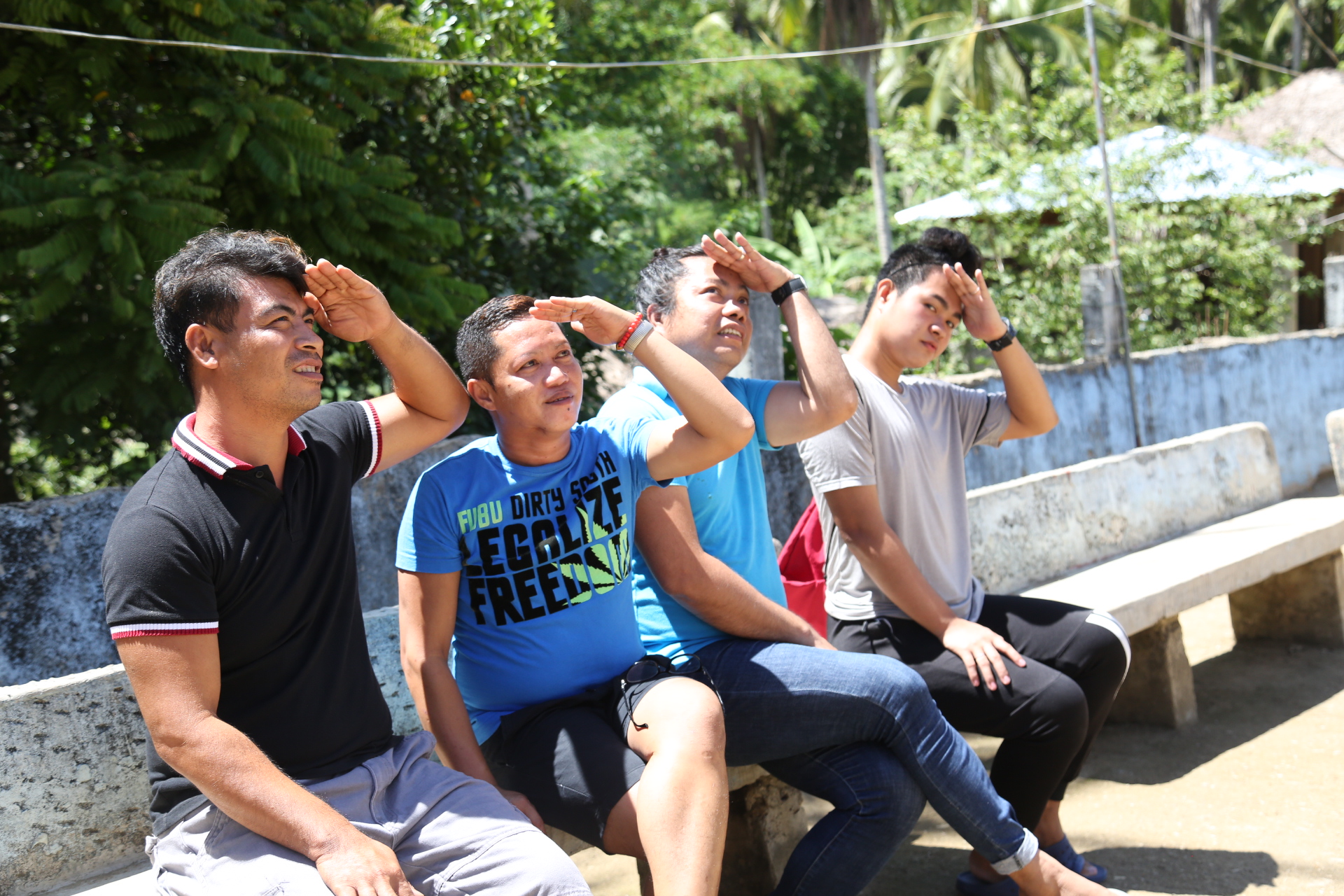
“Openness may not completely disarm prejudice, but it’s a good place to start.” – Jason Collins, first openly gay athlete in U.S. pro sports
This statement livens up the Lesbian, Gay, Bisexual, Transsexual, Queer, Intersex and Asexual (LGBTQIA) community of Barangay Piña in San Jacinto, Masbate by taking part in the implementation of community projects geared towards empowerment and local development.
Jhonnel de los Santos, 34, day care worker who is part of LGBTQIA was voted by community members through a barangay assembly to oversee the implementation of pathway sub-project as Barangay Sub-Project Management Committee (BSPMC) chairperson.
This barangay road was funded through the Department of Social Welfare and Development Kapit-Bisig Laban sa Kahirapan – Comprehensive and Integrated Delivery of Social Services (DSWD Kalahi-CIDSS).
According to Barangay Captain Jhony Almencion, the main source of livelihood of the barangay is farming while selling of gravel and sand for construction serves as a sideline.
The community proposed the construction of barangay road to ease the travel of students and delivery of agricultural products.
“Ang hirap ng dinadanas namin noong kami ay nagaaral pa lamang kapag inaabot kami ng baha hinihintay na muna namin ito humupa at ang hirap din kapag putik (It was difficult when we were still going to school because we had to wait for the flood to subside and we experienced the difficulty of walking in muddy roads),” he explained.
MARCHING THROUGH THE IMPLEMENTATION
To finish the sub-project with flying colors is already a feat. But, the community is not an exception when experiencing difficulties.
According to Jhonnel, they have difficulty in organizing the community for an assembly because some do not believe in the DSWD Kalahi-CIDSS program.
“Tinatak ko sa isip iyon na pagsubok na kailangan malampasan kaya ini-encourage o ipinapamulat ko sa mga tao na totoo yung program sa pamamagitan by purok na invitation sa pag-attend ng barangay assemblies (I set the problem as a need to solve so I encourage or enlighten the residents that the program is indeed real by inviting them by zone to attend the barangay assemblies),” he said.
Jhonnel also said that as a gay, he also faced discriminatory remarks from others questioning his ability as BSPMC chairperson who leads the implementation.
“Marami nagsasabi na hindi ko kaya kasi bading o bakla ako pero ang sarap sa pakiramdam na maraming tao pa rin ang naniniwala sa akin na kaya ko (Many said that I won’t be able to make it because I’m gay but it’s pleasant that many people also believed in me),” he added.
Using the trust given by other community members, Jhonnel set aside the discrimination and dedicated his time and effort in implementing the project diligently.
The volunteer also emphasized that the barangay became one family during the implementation.
“Dito sa aming barangay ay parang isang pamilya. Kami ay nagtutulungan at sama-sama sa mga pangarap namin (Here in our barangay, we are one family that help each other and together in achieving dreams),” he recounted.
Jhonnel also inspired fellow LGBTQIA to participate in the program like Jose Rey Lignes, 35, a community volunteer of Barangay Danao by sharing experiences and words of encouragement.
According to Rey, when their intervention was not prioritized for funding by DSWD Kalahi-CIDSS on its third cycle of implementation, Jhonnel encouraged them not to give up on proposing their community project for the succeeding cycle because all their sacrifices will be put to waste.
“Ini-encourage kami niya na lahat na pagod namin ay mawawalang saysay kapag sumuko kami so ngayon na Cycle 4 nakapasok kami sa DSWD Kalahi-CIDSS (He encouraged us that all our efforts will be useless if we decided to surrender. Through his advice, we are now part of the Cycle 4 implementation of DSWD Kalahi-CIDSS),”
Every barangay in a target municipality must undergo the Municipal Inter-Barangay Forum (MIBF) for every cycle of DSWD Kalahi-CIDSS to identify the prioritized projects to be funded.
INVOLVEMENT IN THE LOCAL DEVELOPMENT
Before, the barangay council would decide the project on their own during sessions. Through DSWD Kalahi-CIDSS, the community is already part of the decision-making process for the development of their barangay.
“Sa Kalahi-CIDSS, lahat ng community tulung-tulong kami na magpaplano kung ano ang dapat na gawin na proyekto (In Kalahi-CIDSS, all in the community are helping in planning for the projects they deemed fit),” Barangay Captain Jhony said.
“Bilang punong barangay, ang gagawin ko po ay kasama na ang community sa pagpaplano ng development plan dahil mas kumportable kami kasama ang community dahil wala kaming makakaligtaan kung ano ang problema ng community (As barangay captain, I will include the community in the preparation of the development plan because we [council] are more comfortable with the residents and no problem will be left out in the community),” he continued.
To date, the construction of barangay road is on its 67% physical accomplishment.
Taking initiative despite differences in gender, age or religion is a good indication that everyone knows the rights and responsibilities as a community member. /ramsertan/
About DSWD Kalahi-CIDSS
Masbate has implemented DSWD Kalahi-CIDSS in 20 municipalities with a total implementation grant of Php 991,115,029.96 and local counterpart contribution of Php 55,064,765.38 from barangay and municipal local government units (LGUs) to fund community-managed sub-projects.
DSWD had allocated San Jacinto with Php 44,758,400.00 and local counterpart contribution of Php 2,626,049.00.
The construction of barangay road has a total project cost of Php 5,806,460.00 with local counterpart contribution of Php 305,603.00 that will benefit 48 households.
For more details about DSWD Kalahi-CIDSS, follow this link:
